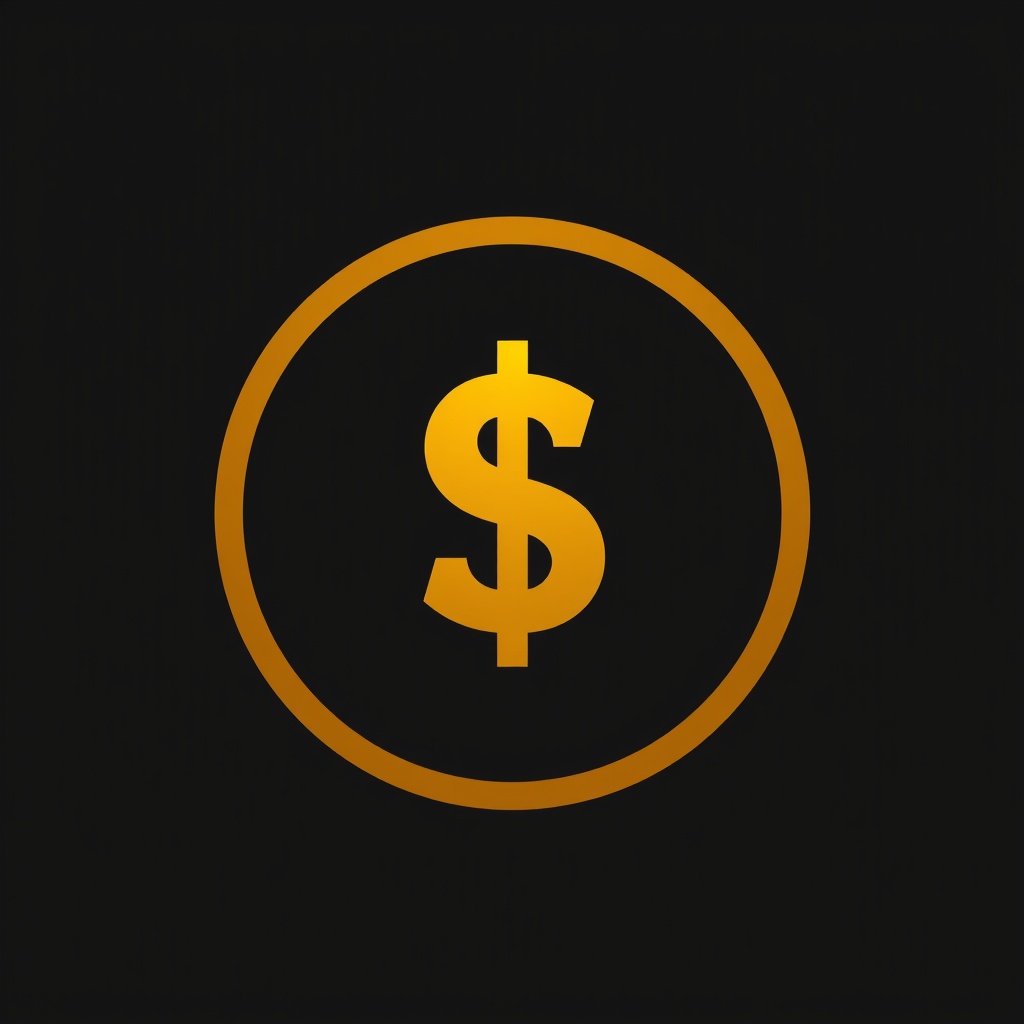By Cap Puckhaber, Reno, Nevada
I’m Cap Puckhaber, a marketing professional, amateur investor, part-time blogger and outdoor enthusiast. Today we break down the pros and cons of CDs vs. T-Bills and what you can do to decide which is best for you (or both!).
If you’re anything like me, you’ve probably been watching the news lately with a bit of a furrowed brow. Talk of recessions, market volatility, and just general economic uncertainty can make even the most seasoned investor feel a little uneasy. It’s totally normal to start thinking, “Where can I put my money where it’s actually safe?”
Well, you’ve come to the right place! Over here at SimpleFinanceBlog.com, my goal is to make sense of all this money stuff, and today, we’re diving deep into two fantastic options for folks looking for a little more security: Certificates of Deposit (CDs) and Treasury Bills (T-Bills). They’re often lumped together because they’re both considered low-risk, but trust me, they’ve got their own quirks.
I’m Cap Puckhaber, and I’ve personally used both CDs and T-Bills to diversify my own portfolio, reduce risk, and even generate a little income. So, I’m not just talking theory here; I’m sharing what I’ve actually done. We’re gonna break down what these investments are, how they work, their pros and cons, and even help you figure out which one might be the perfect fit for your financial goals. Ready? Let’s get to it!
What in the World Are CDs and T-Bills Anyway?
Before we get too far, let’s clear up what we’re even talking about. It’s easy to get these terms mixed up, but they’re pretty distinct once you know the ropes.
Certificates of Deposit (CDs): Your Bank’s Time Capsule for Money
Think of a CD like a special savings account where you promise your bank you won’t touch your money for a set period. In exchange for that promise, the bank gives you a guaranteed interest rate that’s usually higher than what you’d get in a regular savings account. It’s like putting your money in a little time capsule!
When you open a CD, you pick how long you want your money to be “locked up”—this is called the “term length.” It could be as short as three months or as long as five years, sometimes even more. The interest rate you get is fixed for that entire term. That means no surprises; you know exactly what you’ll earn.
And here’s a big comfort: CDs from banks are typically insured by the Federal Deposit Insurance Corporation (FDIC) up to $250,000 per depositor, per bank. That’s a fancy way of saying your money is super safe, even if the bank goes belly-up. The catch? If you need your cash before the CD matures, you’ll likely face an early withdrawal penalty, which can eat into your earnings. It’s their way of encouraging you to stick to your promise.
Treasury Bills (T-Bills): Lending Money to Uncle Sam
Now, T-Bills are a whole different beast, though still very safe. These are short-term IOUs issued by the U.S. government. Yep, when you buy a T-Bill, you’re essentially lending money to the federal government for a short period.
T-Bills usually mature within one year—we’re talking terms like 4, 8, 13, 17, 26, or 52 weeks. Here’s how you make money: instead of paying you interest directly, T-Bills are sold at a discount to their “face value.” When the T-Bill matures, the government pays you the full face value. The difference between what you paid and the face value is your interest earned. So, if a $10,000 T-Bill sells for $9,800, you’d earn $200 when it matures. Pretty neat, huh?
Because they’re backed by the U.S. government, T-Bills are considered one of the safest investments you can make. The chance of the U.S. government defaulting on its debt is, well, pretty much zero.
Setting Them Up: Easier Than You Think!
You might be thinking these sound complicated to get your hands on, but they’re surprisingly straightforward.
- CDs: You can open a CD right at your local bank or credit union. Many banks, like those you hear about on Dave Ramsey’s show, offer them. You can usually do it online or in person. You’ll just need to decide on the term length and how much you want to deposit. Simple as pie!
- T-Bills: You can buy T-Bills directly from the U.S. government through their TreasuryDirect website. It’s a pretty user-friendly site. Alternatively, you can purchase them through a brokerage account, like those you might use for stocks or ETFs. Many financial platforms, including those mentioned on Morningstar or Yahoo Finance, will let you do this.
The Good, The Bad, and The Money: Pros and Cons
Every investment has its ups and downs, and CDs and T-Bills are no exception. Knowing these can really help you decide if they fit your specific situation.
Certificates of Deposit (CDs)
Upsides:
- Guaranteed Returns: This is a big one. Once you lock in that rate, you know exactly what you’re getting back. It’s a fantastic feeling of certainty, especially when other investments are bouncing all over the place.
- Super Low Risk: Thanks to that FDIC insurance, your principal is protected up to $250,000. For folks who are really cautious about their money, this is a huge comfort.
- Better Than a Savings Account (Usually): CDs often offer a higher interest rate than your everyday savings account. So, if you’ve got cash sitting in a low-interest savings account, a CD can be a smart way to juice up those returns a bit.
Downsides:
- Early Withdrawal Penalties: This is the biggest drawback. If life throws you a curveball and you need that money before the CD matures, you’re gonna pay for it. The penalty can be a portion of your earned interest, or sometimes even a bit of your original deposit.
- Inflation Risk: Here’s a mild contradiction for you: while your returns are guaranteed, your purchasing power isn’t. If inflation starts soaring and your CD’s fixed interest rate is lower than the inflation rate, your money won’t buy as much in the future. It’s like running on a treadmill that’s speeding up!
- Liquidity Risk: Your money is tied up. Period. If you need quick access to cash, a CD might not be the best spot for it.
- Interest Rate Risk: Imagine you lock into a 2% CD for five years, and then six months later, interest rates jump to 5%. You’re stuck at 2% while everyone else is getting higher returns. It happens!
Treasury Bills (T-Bills)
Upsides:
- The Safest of the Safe: Because they’re backed by the full faith and credit of the U.S. government, T-Bills are considered virtually risk-free. It’s about as safe as it gets for an investment.
- Short Maturity: Most T-Bills mature within a year, making them great for short-term goals or if you want to keep your money fairly liquid without just letting it sit in a checking account.
- Easy to Access: If you do need to sell before maturity, there’s a robust secondary market. You won’t get penalized like with a CD; you’ll just sell it at the prevailing market price.
- State and Local Tax Exempt: This is a nice perk! While you’ll pay federal income tax on your T-Bill earnings, you won’t owe state or local taxes. That can be a real benefit, especially if you live in a high-tax state.
Downsides:
- Lower Returns: Generally, because they’re so safe and short-term, T-Bills tend to offer lower returns compared to other investments like stocks or even longer-term bonds. You’re trading higher potential gains for peace of mind.
- Inflation Risk (Again!): Just like with CDs, if inflation outpaces the yield on your T-Bills, your purchasing power can erode. It’s a common challenge for many fixed-income investments.
- Federal Taxable: While state and local tax-exempt, you still have to pay federal income tax on the interest you earn. It’s something to factor into your overall return calculations.
Showdown! CDs vs. T-Bills: A Side-by-Side Look
Sometimes, seeing things side-by-side really helps. Here’s a quick comparison to highlight the key differences:
| Feature | Certificates of Deposit (CDs) | Treasury Bills (T-Bills) |
|---|---|---|
| Issuer | Banks and Credit Unions | U.S. Government |
| Safety | FDIC-insured up to $250,000 per depositor, per institution | Backed by the full faith and credit of the U.S. Government |
| How Interest is Earned | Fixed interest rate paid at maturity or periodically | Sold at a discount; difference between purchase price and face value is your return |
| Typical Terms | 3 months to 5+ years | 4, 8, 13, 17, 26, or 52 weeks (up to 1 year) |
| Liquidity | Low; early withdrawal penalties apply | High; can be sold on the secondary market without penalty |
| Tax Treatment | Fully taxable (federal, state, and local) | Federal income tax applies; exempt from state and local taxes |
| Where to Buy | Banks, Credit Unions (online or in person) | TreasuryDirect.gov, Brokerage Accounts |
| Risk Profile | Very low risk | Extremely low risk |
Which One’s Right for Your Wallet? Finding Your Perfect Match
Alright, so you know what they are and their pros and cons. Now for the million-dollar question: which one should you pick? It really boils down to your personal financial goals, your timeline, and how comfortable you are with your money being tied up.
- If you’re saving for a specific, short-term goal like a down payment on a car next year, or a big vacation fund, a CD could be a great fit. You know exactly what you’ll earn, and the fixed rate gives you peace of mind. Just be sure you won’t need that cash before the maturity date!
- For your emergency fund, or if you need ultimate flexibility, T-Bills might be your champion. Their short maturities mean your money isn’t tied up for long, and you can easily sell them if an unexpected expense pops up. Plus, that state and local tax exemption is a sweet bonus.
- If you’re looking for predictable income in retirement, both can play a role. I’ve seen folks use a strategy called “CD laddering” where you buy CDs with staggered maturity dates. As one matures, you reinvest it, ensuring you always have some cash coming in without tying up all your money for too long. You can do a similar thing with T-Bills.
- When interest rates are rising, T-Bills might be more attractive because their short terms allow you to reinvest at higher rates sooner. With a long-term CD, you’re locked in. Conversely, when rates are falling, a longer-term CD can be appealing because you lock in a higher rate before they drop further.
My Two Cents: How I Use CDs and T-Bills in My Portfolio
You know, for me, investing isn’t just about chasing the highest returns; it’s about building a stable financial house. And just like you wouldn’t build a house with only one type of material, I don’t build my portfolio with only one type of investment. That’s where CDs and T-Bills come into my personal strategy.
I’ve found that including both CDs and T-Bills helps me achieve a few key things:
First, diversification. It’s like having different types of ingredients for a balanced meal. While I do invest in stocks and ETFs for growth potential (we’ll talk about those in a minute), I also like having a solid foundation of low-risk assets. CDs and T-Bills act as that stable base. They don’t swing wildly with the market, which helps reduce the overall risk of my portfolio.
Second, income generation. Even though the returns aren’t sky-high, they’re consistent. For someone like me who’s thinking about future income streams, those regular, predictable earnings from maturing CDs or T-Bills are really valuable. It’s like having a steady drip of water in a desert; it keeps things going.
Finally, they help me sleep better at night. Seriously! Knowing I have a portion of my money in super-safe places, especially when the economy feels a bit wobbly, gives me immense peace of mind. It means I don’t have to panic sell other investments if the market takes a dip, because I’ve got my safe money tucked away. I use resources like MarketWatch and Motley Fool to keep an eye on broader market trends, but my CDs and T-Bills are my personal “set it and forget it” safe spots.
Beyond the Basics: Comparing to Stocks and ETFs (and Why It Matters)
Now, some folks might wonder, “Why bother with CDs and T-Bills when stocks and ETFs can offer higher returns?” That’s a fair question, and it gets to the heart of balancing risk and reward.
Here’s the deal: both CDs and T-Bills are generally much, much safer than individual stocks or Exchange-Traded Funds (ETFs). Stocks and ETFs certainly offer the potential for much higher returns over the long run, but they come with a whole lot more volatility and risk.
- Stocks: An individual stock can shoot up or plummet based on company news, industry trends, or overall market sentiment. You could make a fortune, or you could lose a significant chunk of your investment. It’s a wild ride!
- ETFs: These are a bit like baskets of different investments—stocks, bonds, commodities, whatever. They offer diversification within the fund, which makes them less risky than owning just one stock. However, they’re still subject to market fluctuations. If the overall market goes down, your ETF will likely go down with it.
So, while ETFs often offer higher long-term returns compared to CDs or T-Bills, they definitely come with higher risk. CDs and T-Bills are your slow-and-steady wins the race kind of investments. They’re not going to make you rich overnight, but they’re also not going to give you a heart attack when the market decides to take a nosedive.
Making It Happen: Actionable Steps for Your Money
Feeling ready to put this knowledge to work? Here’s some actionable advice to help you apply what we’ve talked about to your own life:
- Assess Your Goals: What are you saving for? When do you need the money? This is the first step. If it’s a short-term goal (less than a year or two) and you absolutely can’t afford to lose any principal, CDs or T-Bills are strong contenders.
- Know Your Risk Tolerance: How much market fluctuation can you handle without losing sleep? If you’re super risk-averse, leaning more heavily on CDs and T-Bills makes sense. If you’re comfortable with more ups and downs for higher potential gains, you’ll want to balance them with stocks or ETFs.
- Consider Laddering: This is a smart strategy, especially with CDs. Instead of putting all your money into one CD with a single maturity date, you spread it across several CDs with different maturity dates (e.g., a 6-month, 1-year, 2-year, and 3-year CD). As each one matures, you can reinvest it at the current rates. This gives you regular access to your money and helps mitigate interest rate risk. You can do a similar thing with T-Bills.
- Do Your Homework: Before you commit, always check the latest rates. Websites like Investopedia’s Best CD Rates and Investopedia’s How to Invest with CDs are great resources for current CD and T-Bill rates.
- Think About Your Overall Portfolio: Remember, CDs and T-Bills are just two tools in your financial toolbox. They work best as part of a well-rounded portfolio. Consider how they fit alongside your retirement accounts, brokerage investments, and even your emergency savings.
Wrapping It Up: Your Path to Smarter Investing
So, there you have it! CDs and T-Bills are excellent low-risk, conservative investment options. They’re fantastic for capital preservation, generating predictable income, and providing a stable anchor in your portfolio, especially when you’re navigating uncertain economic waters or planning for retirement.
While they might not offer the explosive growth of stocks, their safety and reliability make them invaluable for specific financial goals. The key, as always, is to assess your own financial situation, understand your goals, and choose the investments that align best with your comfort level.
This post was brought to you by SimpleFinanceBlog.com, hosted by yours truly, Cap Puckhaber. We’re all about breaking down complex financial topics into simple, actionable insights to help you make informed decisions.
What do you think? Are CDs or T-Bills going to find a home in your portfolio?
Cap Puckhaber’s latest take on The Economy and the Stock Market: A Guide for Investors
Check out my latest blog The Ultimate Guide to the Best Investing & Crypto Apps for Beginners
New to Simple Finance S&P 500 for Beginners: A Guide to History, Performance, and Risk
Cap Puckhaber’s latest take on Bond Investing for Beginners: A Plain English Guide
Check out my latest blog A Beginner’s Guide to Passive Income and Dividend Investing
Investing Blog for Beginners
Hosted by Cap Puckhaber of Black Diamond Marketing Solutions, this investing blog offers daily articles on investing, savings, bonds, interest rates, mortgages, and more.



About the Founder / Author
Cap Puckhaber is a seasoned marketing strategist and finance writer, based in Reno, Nevada with over 20 years of experience investing, marketing and helping small businesses grow.
He offers expert advice on how to save for retirement, how to use a retirement calculator and the difference between T-Bills and CDs.
Cap shares actionable insights on how to promote your business locally for free and on trending platforms like X.
He shares his personal investment journey, how to use trade volume to predict breakouts, and his take on covered call strategies.

Follow Cap Puckhaber Online
Connect with Cap Puckhaber on Facebook
See Real-Time Thoughts on X
Read In-Depth Articles on Medium
Subscribe to Cap Puckhaber’s Substack Newsletter
Follow Cap Puckhaber’s Company Page on LinkedIn
View Our Agency Profile on DesignRush
See Cap Puckhaber’s Agency on Agency Spotter
Explore Technical Projects on GitHub
See Cap Puckhaber’s Creative Portfolio on Behance
Learn more about my company on Crunchbase
Join Cap Puckhaber’s Conversation on BlueSky
Follow My Updates on Mastodon

Backpacker, Marketer, Investor, Blogger, Husband, Dog-Dad, Golfer, Snowboarder
Cap Puckhaber is a marketing strategist, finance writer, and outdoor enthusiast from Reno, Nevada. He writes across CapPuckhaber.com, TheHikingAdventures.com, SimpleFinanceBlog.com, and BlackDiamondMarketingSolutions.com.
Follow him for honest, real-world advice backed by 20+ years of experience.



Leave a Reply